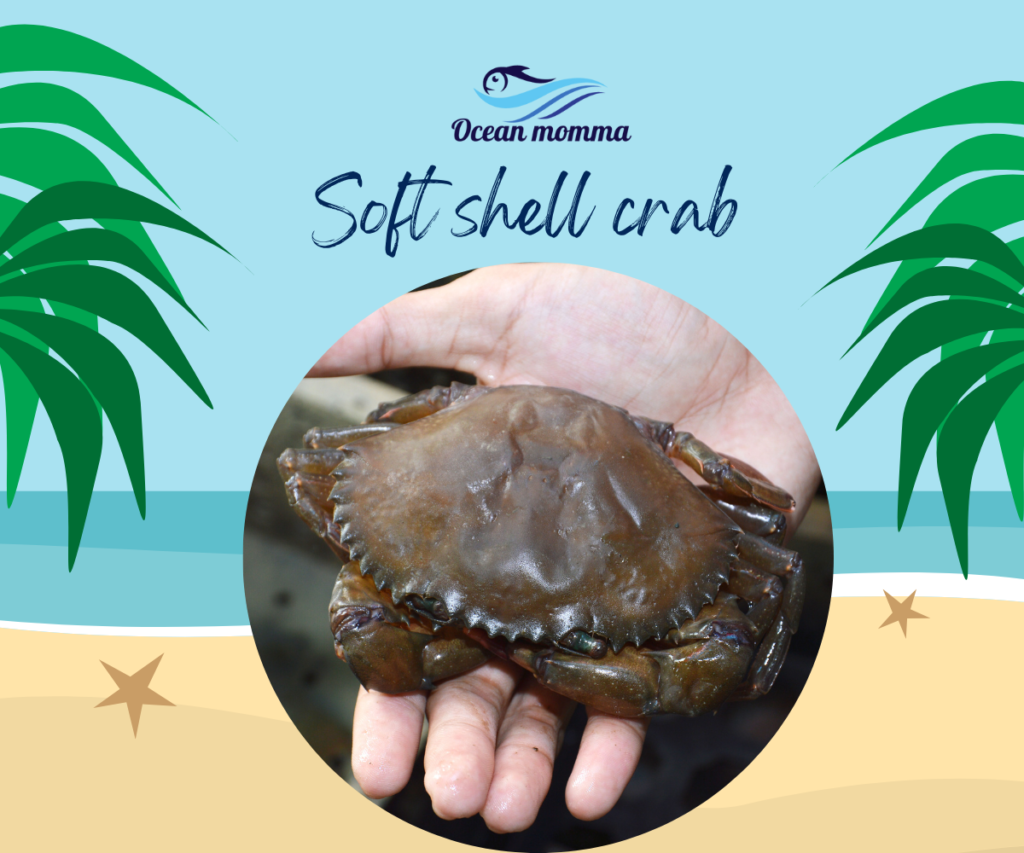Soft shell crab is a unique and highly sought-after delicacy enjoyed in various culinary traditions around the world. Unlike most crabs, which are typically consumed after the hardening of their shells, soft shell crabs are caught and enjoyed during a brief period when they have molted and their shells are still soft and edible. This stage in their life cycle offers a distinct texture and flavor that is cherished by seafood enthusiasts.
The process of shedding its exoskeleton is a natural occurrence for a crab as it grows. During this molting process, the crab’s old shell splits and is discarded, allowing a new, larger shell to form underneath. At this stage, the crab’s entire body, including its legs and carapace, is soft and flexible, making it possible to enjoy the crab in its entirety without the need for cracking or shelling.
Soft shell crabs are typically harvested immediately after they molt to ensure their shells remain soft and pliable. They are highly valued for their delicate, sweet meat and the unique texture their soft shells provide. The tender shell allows for easy consumption and adds a crispy element when cooked, creating a delightful contrast to the succulent crab meat.
Soft shell crabs are popular in many cuisines, particularly in Asian, American, and Mediterranean cooking. They can be prepared in various ways, including frying, grilling, sautéing, or even served in sandwiches or salads. Their versatility in the kitchen and distinctive taste make them a favorite ingredient for seafood lovers and adventurous eaters alike.
Whether enjoyed as a standalone dish, incorporated into seafood recipes, or featured in gourmet presentations, soft shell crab offers a delectable culinary experience. Its limited availability during specific seasons, along with its unique texture and flavor profile, make it a sought-after delicacy that adds a touch of elegance to any meal.

Soft shell crab refers to a stage in the life cycle of crabs when they have shed their old exoskeleton and are in the process of developing a new, larger one. During this stage, the crab’s shell is soft and pliable, making the entire crab edible, including the shell. Soft shell crab is considered a delicacy in many cuisines and offers several potential health benefits:
High protein content: Soft shell crab is a good source of protein, which is essential for building and repairing tissues, supporting muscle growth, and maintaining a healthy immune system.
Rich in omega-3 fatty acids: Soft shell crab contains omega-3 fatty acids, particularly EPA (eicosapentaenoic acid) and DHA (docosahexaenoic acid). These healthy fats have been linked to numerous benefits, such as reducing inflammation, supporting brain health, and promoting heart health.
Nutrient-dense: Soft shell crab provides various vitamins and minerals, including vitamin B12, selenium, copper, zinc, and phosphorus. Vitamin B12 is crucial for maintaining healthy nerve function and producing red blood cells, while minerals like selenium and copper act as antioxidants and support immune function.
Low in saturated fat: Soft shell crab is relatively low in saturated fat compared to other meat sources. By incorporating it into a balanced diet, it can help reduce the intake of saturated fats, which are associated with an increased risk of heart disease.
Source of chitin: Soft shell crab shells are composed of a substance called chitin. While chitin itself is not digestible, it may have potential health benefits. Some research suggests that chitin may aid in weight management, improve gut health, and support the immune system.
It’s important to note that soft shell crab is typically prepared by frying or sautéing, which can add extra calories and fat. To maintain the healthiest preparation, consider grilling, baking, or broiling the crab instead. Also, it’s essential to consider individual dietary needs and consult a healthcare professional if you have any specific concerns or conditions.
Remember, moderation and a well-rounded diet are key to enjoying the health benefits of any food.
Written by
Jesica Mithila


